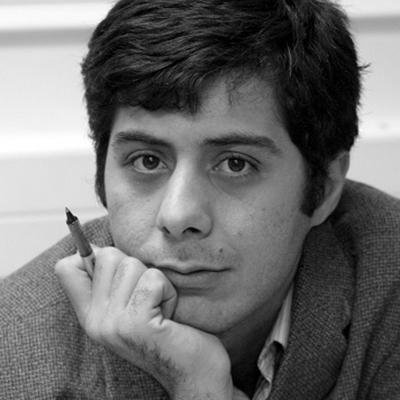
Last Update
May 20, 2020
Organisation
Unknown
Gender
Male
Ethnic Group
Unknown
Religoius Group
Muslim
Province
Tehran
Occupation
Journalist
Sentence
6 years imprisonment; 5 year ban from journalism; 100 lashes
Status
Released
Institution investigating
Ministry of Intelligence
Charges
Disturbing public order
Propaganda against the regime
Date of Birth
12/2/1978
Place of Birth
Arak
Masoud Bastani Released
“Masoud’s mother fainted three times while we were inside the prison. I will certainly file a complaint against the guard. He had no right to beat him right in front of his mother and his wife.”
“The only thing that he wanted was to continue a job he liked in spite of all the difficulties that go with journalism,” said his wife, who was also incarcerated for her journalistic work in 2009.
“Masoud’s mother fainted three times while we were inside the prison. I will certainly file a complaint against the guard. He had no right to beat him right in front of his mother and his wife.”
Masoud Bastani was first arrested in 2004 and charged with activities that threatened national security and misled the public. He was sentenced to six years in prison, a five-year ban from journalism, and 100 lashes.
Bastani was arrested again as he arrived at Milad Hospital to report on the condition of pro-democracy journalist and activist Akbar Ganji, who had been hospitalized after a hunger strike. Bastani was detained, sentenced to lashes and forced to pay a fine.
His third arrest came on July 5th 2009, when he went to the Revolutionary Court to inquire about the situation of his wife, Mahsa Amr Abadi, who had been arrested on the day of the disputed presidential election. He spent more than 80 days in solitary confinement at Evin Prison. He “voluntarily” testified against himself in court and was sentenced to six years in prison and a $14,000 fine. His wife later said that he had confessed in exchange for her release.
In February 2010, Bastani was illegally transferred to Rajaie Shahr Prison in Karaj, one of the harshest prisons in Iran. There are widespread reports that torture, murder and sexual assaults take place in the prison on a regular basis. For several months, he was locked up with drug dealers and those accused of violent crimes.
Bastani and Abadi had been married just a few months when she was arrested in 2009. For three and a half years, the authorities refused to grant Bastani a medical furlough. The first time they agreed to do so was after his wife was sent to prison. In June 2011, before Mahsa Amr Abadi started her own sentence, her mother and mother-in-law went to Rajaie Shahr Prison to visit Bastani. As the visit drew to an end, Bastani was brutally attacked by a guard and taken to hospital. It was thought he might be suffering from a brain hemorrhage.
“This shocked me more than anything else the whole time he was in prison,” Amr Abadi told the International Campaign for Human Rights in Iran. “Masoud’s mother fainted three times while we were inside the prison. I will certainly file a complaint against the guard. He had no right to beat him right in front of his mother and his wife.”
During the time that Abadi and Bastani were both in prison, the prosecutor only allowed them to meet twice. In both instances, Bastani was driven from Rajaie Shahr Prison to Tehran’s Evin Prison, in order that he could spend a few hours with his wife. Abadi worked hard to bring Bastani’s situation to the attention of the outside world.
Speaking to the International Campaign for Human Rights in Iran, she said “He supported Mousavi in the presidential election because he wanted his country to become more prosperous. He did not want position or money. The only thing that he wanted was to continue a job he liked in spite of all the difficulties that go with journalism. He never wrote anything which wasn’t the truth.”
“He must pay a large fine but we have no idea what for. We worked with a weekly publication, which the Intelligence Ministry told us in the past was fine to write for but now argue it’s a counter-revolutionary publication and that they had been wrong to allow it. In any case, a journalist should be able to write for any publication, as long as it doesn’t threaten national security and isn’t affiliated with hostile governments. The law hasn’t been broken.”
After serving serving his six-year sentence at Rajaie Shahr Prison, in Karaj, Masoud Bastani was released on July 19th, 2015.